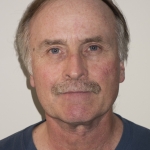Guns and prayers
Newfoundland, PA, United States -- When we went up there, I was kind of expecting to see all these worshippers with a glaze in their eyes and a gun in their hands, like a cult that would try to convert me. But these people, they were like my neighbor. They were all like, “How you doing? Beautiful weather. Oh, here’s my AR-15.”
The place was a splinter group of the Reverend Moon’s Unification Church in Pennsylvania, more commonly known as the “Moonies.” They’ve always been pretty politically active, but I think they’re usually pretty pacifist. They put a lot of emphasis on love and unification -- that’s where the name comes from. They started in South Korea, but they became really well-known in the ‘80s when they moved over to the United States and started holding these mass wedding ceremonies.
This branch broke away and is run by the Reverend Moon’s son. There are a lot of similarities in belief, but the Reverend Moon never had guns or anything like that in his services.
They do a service with guns every week. Normally, they don’t invite the media, but this time they decided to open their doors to us. The church never said why they were inviting us, but the timing seemed a bit odd to me. It came two weeks after a school shooting in Florida left 17 people dead and re-ignited the perennial gun debate in America.
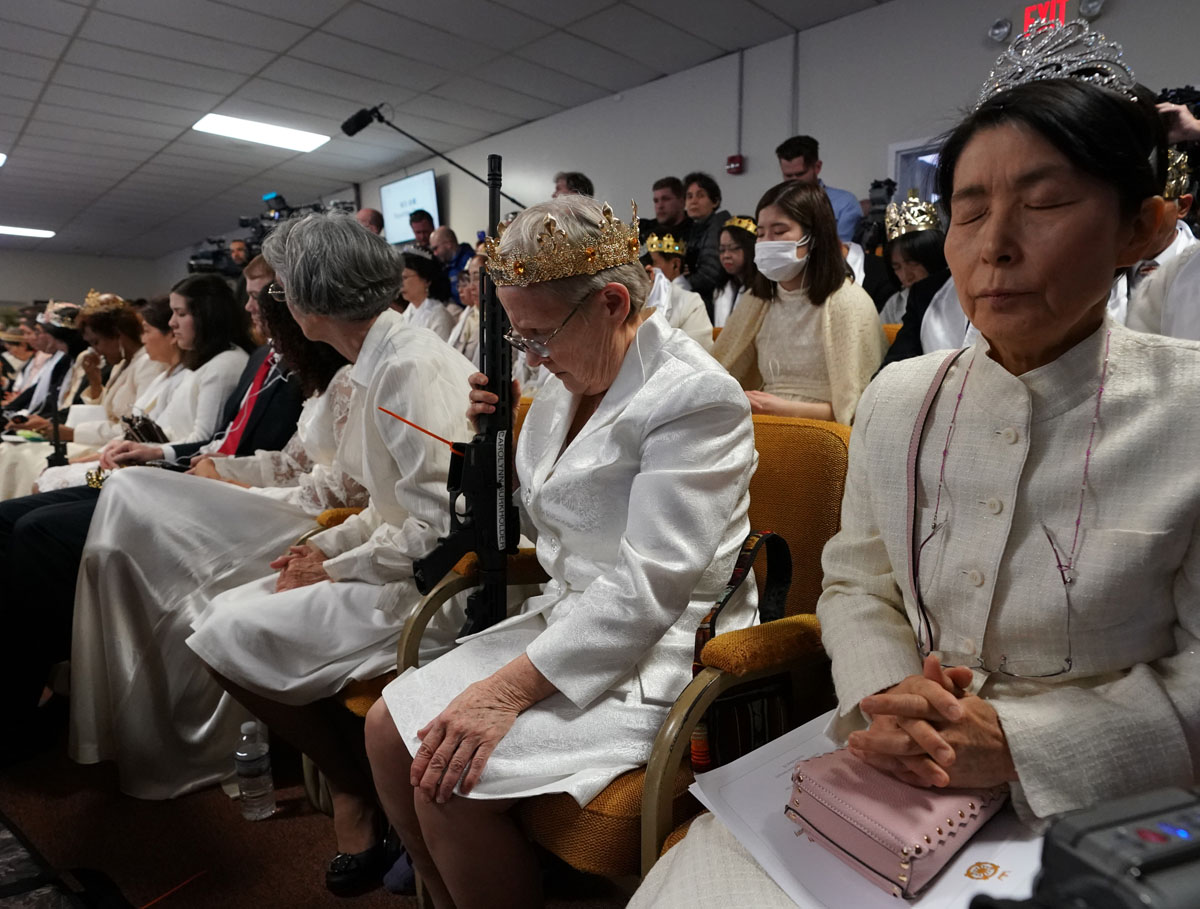
Even though it was only about a two-hour drive from Manhattan, it was pretty isolated. After the service ended, we had to drive 45 minutes back towards the interstate just to get good enough wifi to file the story and the photos. On the way in, we were following Google Maps, and we would see one house maybe every 10 minutes. I never knew there was that much open space in Pennsylvania.
I also don’t actually know why there’s a pocket of this religion in such a rural area. I met some people who had come in from New Jersey, but the rest were pretty concentrated to the area. It’s pretty amazing, considering how remote it is.
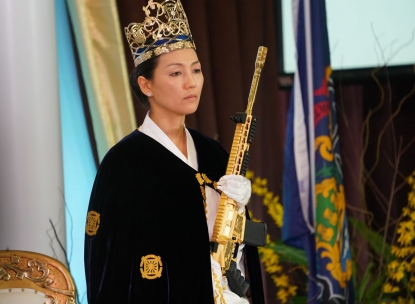 (AFP / Don Emmert)
(AFP / Don Emmert)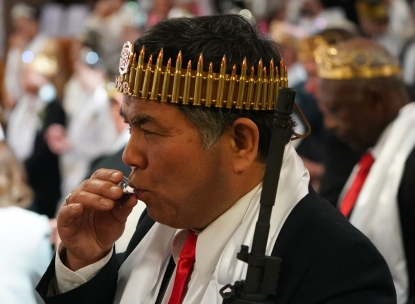 (AFP / Don Emmert)
(AFP / Don Emmert)
And not everybody there was Korean, either. There were a lot of Caucasian, middle class people who were at the service, and they were as involved in the ceremony as everybody else.
We got there early, and the church had a gentleman with PR who came out immediately and filled us in on the ground rules of coverage. There were quite a lot of media there, and the church was accommodating, but they didn’t want us to interfere with their service. We were told to stay in the back and try to cover what we could from there.
As the worshippers started to arrive, there were two tables set up with two men at each table who inspected the guns. They would take the guns out and make sure they weren’t loaded. Then they would put a plastic tab on the firing mechanism so the guns couldn't go off accidentally. It was a pretty thorough inspection before the guns were even allowed to go into the service.
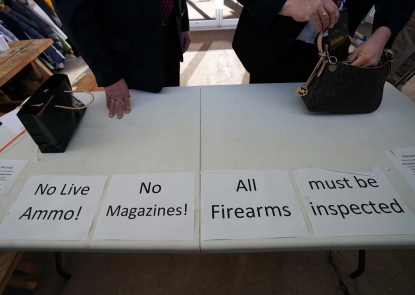 (AFP / Don Emmert)
(AFP / Don Emmert)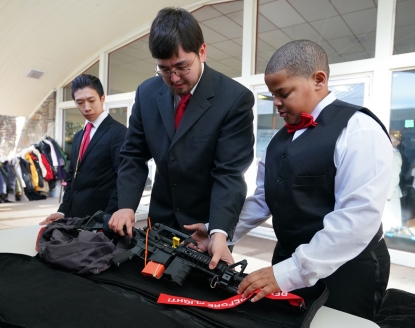 (AFP / Don Emmert)
(AFP / Don Emmert)
I was a little anxious about being there, because there’s a kind of anti-media feeling among right wingers right now, especially because of the administration that we have in Washington. Were they going to be angry that I was there? What are they going to be like? But they were all extremely nice, and not in a fake way. It wasn’t like, “Oh, we’re gonna put on this facade for the media.”
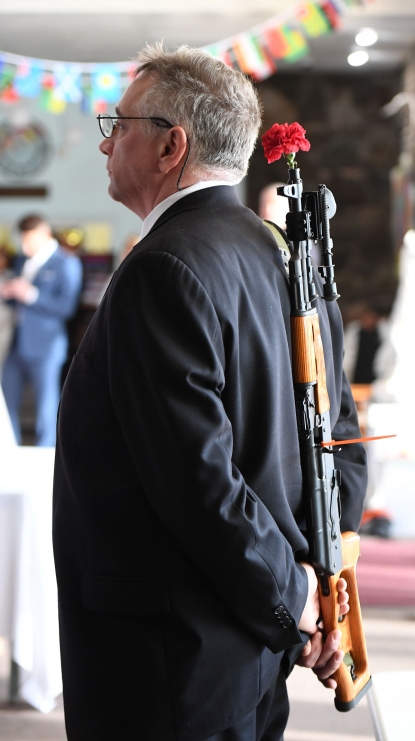 (AFP / Don Emmert)
(AFP / Don Emmert)At one point, I was in the overflow room, and there was a guy who had a flower in the muzzle of his gun. I asked if I could take photos of it, because I was definitely in his space. He said, “Sure, go ahead.” He was real friendly and open about it.
There were about 500 people at the service, plus the overflow room with another 80 or so people.
A lot of people were wearing crowns, which mostly looked homemade. Some were made of wire, and some were made of bullets. The reverend and his wife were decked out in a kind of royal looking garb, and a lot of the worshippers were as well.
I don’t know how many guns were there -- probably 50, 70 guns. The parishioners were praying, and they all took their guns out for a part of the ceremony, and then they put the guns back in their cases and just left them there.
I don’t really remember what they said. I tried to tune out the ceremony and stay focused on getting images. But the service also switched back and forth between Korean and English, which made it hard to follow. There was one gentleman there who appeared to be a veteran of the Korean War, and he read prayers in Korean for a large part of the ceremony.
One guy told me he hoped he would never have to use his gun against another human being, even in self-defense. But it was his right to own one, so he was going to.
That was the common theme that I found from my short time with the worshippers. It wasn't like they were paranoid, but the general attitude on gun ownership was “It’s my right, so I’m gonna have it.” To me, the idea of a church, where you go to worship God, that’s a long way to go from thinking about your gun rights. You’ve got religion on one side, and guns seem like a whole different issue.
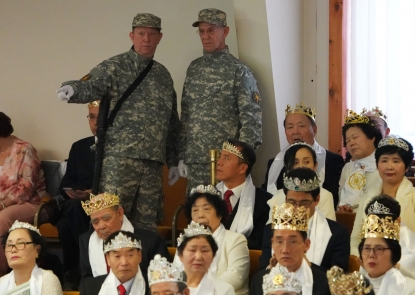 (AFP / Don Emmert)
(AFP / Don Emmert)That’s what I’m still struggling to wrap my mind around, why they feel they have to have a gun.
There’s the argument that it’s ok to have a gun for hunting, but AR-15s and AK-47s aren’t made for hunting. These guns are basically just made for killing humans.
I haven’t really been able to make sense of it. I was brought up in a Baptist home. A church is where you’re taught about loving one another, and supporting one another, and moral values -- truth and things like that. It seems to me that guns are kind of the opposite of that.
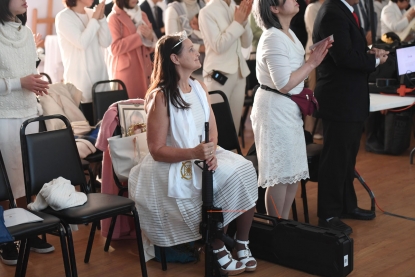 (AFP / Don Emmert)
(AFP / Don Emmert)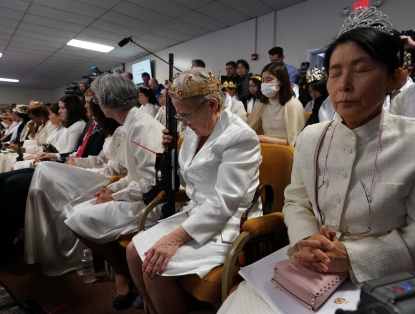 (AFP / Don Emmert)
(AFP / Don Emmert)
Whenever there’s a mass shooting, the debate flares up on both sides. And this particular event came because of how the media fed on what was going on at the time.
But it’s kind of sad, because this will get wiped off the front pages by the next big story. This is an issue that never gets solved. It’ll just flare up again after the next shooting.
This blog was written with Tori Otten in Paris.
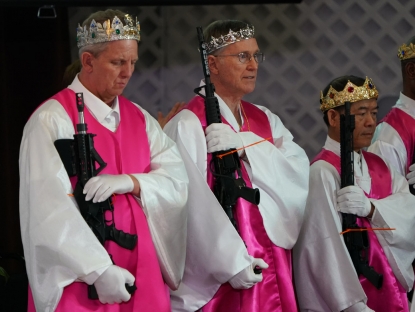 (AFP / Don Emmert)
(AFP / Don Emmert)


